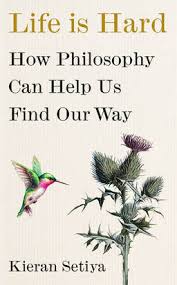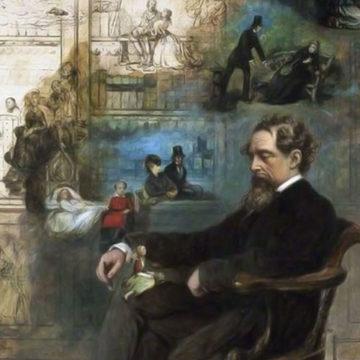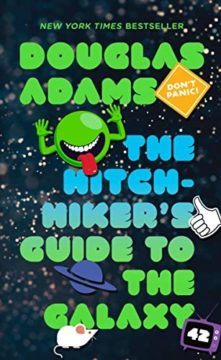by Akim Reinhardt
 It’s not so much that I’m like my father. Rather, I sometimes feel as I understood him to be.
It’s not so much that I’m like my father. Rather, I sometimes feel as I understood him to be.
My mother? Not so much.
Part of it might have to do with sex. My father was a man. I’m a man. But I can’t really feel like a woman. I can feel for a woman. I can empathize. And I can listen when a woman describes her life to me. But I can never fully experience it for myself beyond the vicarious. It’s like being black or gay or someone who doesn’t speak a word of English. There’s a gap I can’t fully cross, a way of being I can’t have short of a plot twist in one of those Freaky Friday body swap comedies .
Is that why the inevitably male patriarchal priests and prophets fashioned a one, true male God? Because aside from the idea that only men should rule, and a hundred other sexist reasons, they could not imagine the soul of a woman?
But that only helps explain why I never feel as I understand my mother to be. Why do I sometimes feel as I understood my father to be?
I’m half of each of them. And if someone asks, I often describe myself as half-Jewish and half-redneck. It’s an incredibly facile and reductionist response. But it’s also an answer the questioner isn’t expecting, and probably isn’t even familiar with. So while seeming to offer little beyond stereotype, it also mildly confuses the questioner without intimidating them. That in turn gets them thinking. It can be good to put someone on their back foot when they ask you that question.
You know the question.
Peeling back that pat answer a bit forces me to remember who he was and wasn’t. A redneck? It was hardly some badge he wore, though he didn’t shy away from the label if it were hung on him. But one had to be careful in ways that New Yorkers might not know how to. I remember him angrily explaining to me once, after I’d made an offhanded comment, that there was a world of a difference between a redneck and white trash. And that he was never the latter. Read more »

 The anger that escalated at a recent Ottawa-Carlton school board meeting when a trustee proposed and lost a motion to mandate masks, in a setting that typically elicits polite discussion, makes it seem like this type of anger is new and shocking in its inappropriateness. But this
The anger that escalated at a recent Ottawa-Carlton school board meeting when a trustee proposed and lost a motion to mandate masks, in a setting that typically elicits polite discussion, makes it seem like this type of anger is new and shocking in its inappropriateness. But this 

 The word arrived from the furniture store. They have come! After five months of supply-chain suspended animation, our 15 feet of 72-inch-high bookcases are here. Bibliophiles everywhere (well, everywhere in my family) raised their voices in praise.
The word arrived from the furniture store. They have come! After five months of supply-chain suspended animation, our 15 feet of 72-inch-high bookcases are here. Bibliophiles everywhere (well, everywhere in my family) raised their voices in praise.



 There was a period in my life when I believed that all humans came from one man. This included his wife Eve. After that followed a period when I believed nothing and I thought that was enough.
There was a period in my life when I believed that all humans came from one man. This included his wife Eve. After that followed a period when I believed nothing and I thought that was enough. Does philosophy have anything to tell us about problems we face in everyday life? Many ancient philosophers thought so. To them, philosophy was not merely an academic discipline but a way of life that provided distinctive reasons and motivations for living well. Some contemporary philosophers have been inspired by these ancient sources giving new life to this question about philosophy’s practical import.
Does philosophy have anything to tell us about problems we face in everyday life? Many ancient philosophers thought so. To them, philosophy was not merely an academic discipline but a way of life that provided distinctive reasons and motivations for living well. Some contemporary philosophers have been inspired by these ancient sources giving new life to this question about philosophy’s practical import. Wendy Red Star. Winter – The Four Seasons Series, 2006.
Wendy Red Star. Winter – The Four Seasons Series, 2006.

 Soon after the pandemic commenced its
Soon after the pandemic commenced its  There was a time when Google replied with images of and information about a world-class jockey, an Englishman born the same year Mark Twain published
There was a time when Google replied with images of and information about a world-class jockey, an Englishman born the same year Mark Twain published  This year marks the 42nd anniversary of the American release of The Hitchhikers’ Guide to the Galaxy. Douglas Adams’ “five-book trilogy,” of which Hitchhiker’s was the first installment, led readers through a melancholy universe in which bureaucracy is the ultimate source of evil and shallow, self-serving incompetents are the galaxy’s greatest villains. The best-selling series helped shape the worldview of Generation X, capturing the nihilistic cynicism of the Thatcher/Reagan 1980s.
This year marks the 42nd anniversary of the American release of The Hitchhikers’ Guide to the Galaxy. Douglas Adams’ “five-book trilogy,” of which Hitchhiker’s was the first installment, led readers through a melancholy universe in which bureaucracy is the ultimate source of evil and shallow, self-serving incompetents are the galaxy’s greatest villains. The best-selling series helped shape the worldview of Generation X, capturing the nihilistic cynicism of the Thatcher/Reagan 1980s.